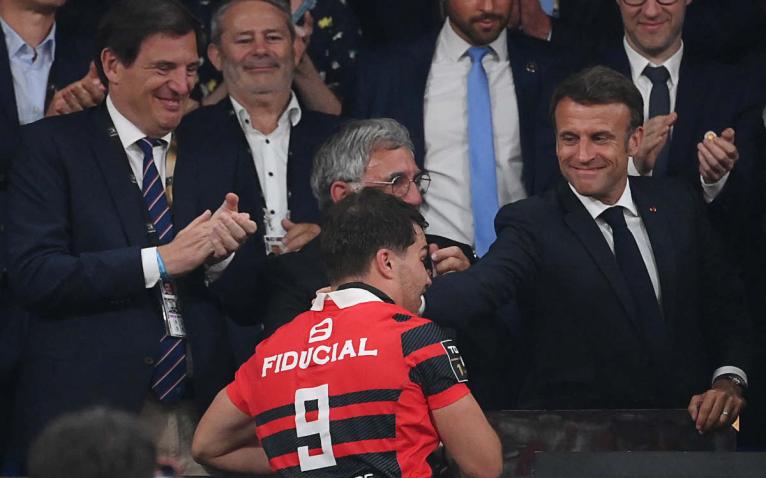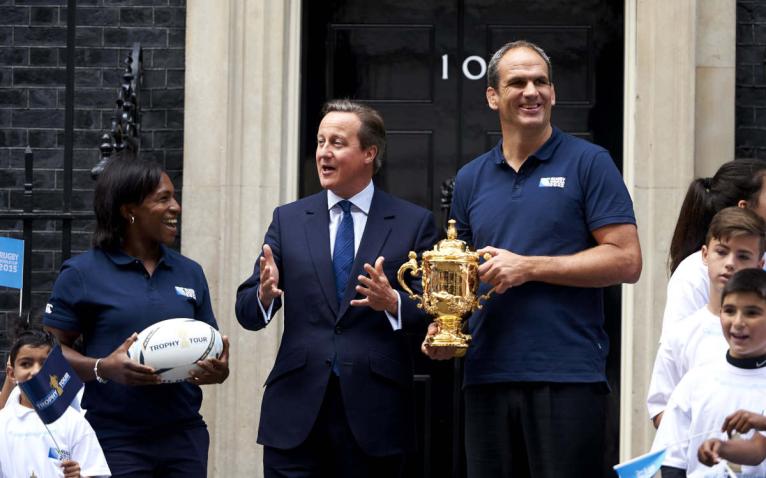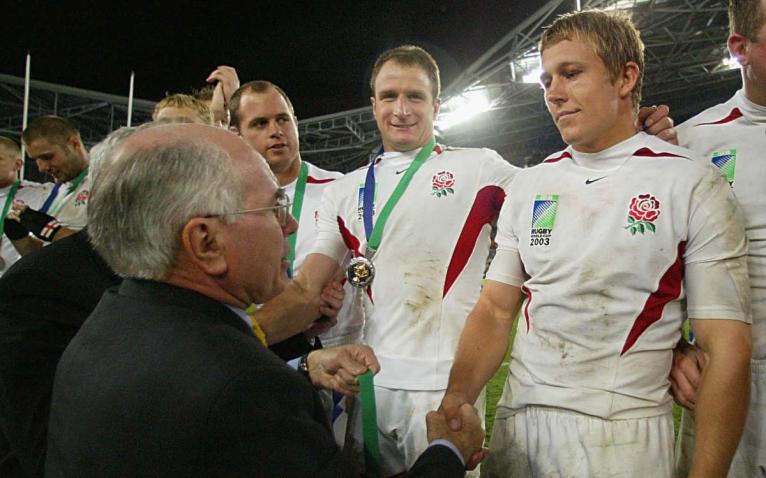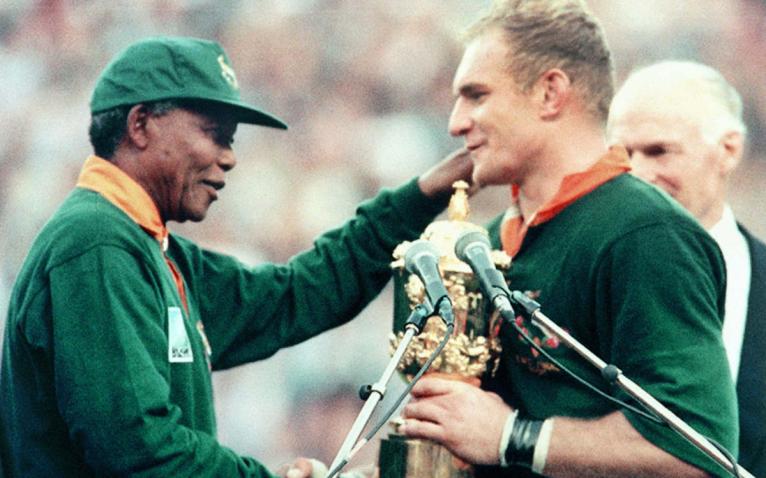Emmanuel Macron likes his sport. Football is his main game, and so the last two World Cups have been good to the French president. Winners in 2018 and valiant runners-up last year, France’s footballers have given Macron what every world leader loves – the chance to jump on a bandwagon.
Now France is on the brink of the most momentous sporting year in its history – hosting the Rugby World Cup in September followed by the Olympic Games next summer. The eyes of the world will be on the Republic and Macron is determined to put on two shows to remember, particularly as the Bleus are the bookies’ favourites to win the World Cup.
There is, however, a fly in the ointment: the people. How can one put this diplomatically? President Macron is not enjoying record levels of popularity right now, a claim borne out by opinion polls. Now is not the time and the place for details, suffice to say that his decision to raise the age of retirement from 62 to 64 earlier this year has gone down as well as a stale croissant.
That’s why he has been keeping a low profile of late. It’s a tradition that the head of state attends both the final of the French football cup and rugby’s Top 14 denouement; Macron was at the Stade de France for the football finale in April but he didn’t brave the supporters of Nantes and Toulouse; instead he was introduced to the teams in the bowels of the stadium far from the madding crowd and their whistles.

In the build up to last Saturday’s Top 14 final between Toulouse and La Rochelle, there was speculation in the press about whether Macron would again play it safe. But this time he strode out onto the Stade de France turf to press the flesh, ignoring the boos that briefly rang out over the music that was being blasted out by the stadium’s sound system.
That wasn’t his only bullish moment; a clip later went viral of the president downing a bottle of beer in the Toulouse dressing room as jubilant players looked on in delight. The clip will do his image no harm; one of the criticisms often levelled at Macron is his aloofness but here he was, not only joining in the celebrations but finishing the beer in one. .
Aligning oneself too closely with a team is fraught with political risk. France are favourites for the World Cup but what if, heaven forbid, they ‘do an England’
What Macron wouldn’t give to be back celebrating in that Stade de France dressing room on October 28, swigging back the booze with the Bleus with the Webb Ellis Cup at their side. Think of the photo opportunities! Macron has photobombed Kylian Mbappé a few times over the years (last week the PSG striker had to deny rumours that the president was pressurising him not to move to Real Madrid), so should France be crowned world champs Antoine Dupont might have to get used to sharing the limelight with his sports-mad president. Like Mbappé, the French scrum-half is not only a once-in-a-generation talent, he embodies the virtues of hard work, humility and determination. What political leader wouldn’t want to be muscle in on their marketability?
But aligning oneself too closely with a team is fraught with political risk. France are favourites for the World Cup but what if, heaven forbid, they ‘do an England’ and crash out of their own tournament at the pool stage?

On the eve of the 2015 RWC David Cameron posed on the steps of 10 Downing Street with Martin Johnson and Maggie Alphonsi. Johnno was holding the famous gold cup, as he had on that glorious English evening 12 years earlier; no doubt Cameron dreamed of a second success, another triumph to go with his recent general election victory. “The Rugby World Cup will be a compelling spectacle,” a bullish PM told the media pack. “The tournament promises to be the best ever.”
John Howard hoped the Wallabies would come to his rescue, and when they reached the final – against the Poms, of all people – he got himself the gig of handing out the medals
Tell that to the English. It was their worst ever tournament, the first time a host nation had failed to make it out of the pool stage. Coming a year after England had been dumped out of the football World Cup at a similar stage, Cameron was asked during a radio interview if he was ‘curse’ on English sports team. “That annoys me so much,” he snapped back. “That’s nonsense.” Nine months after England’s exit from the RWC, Cameron was also gone, resigning after his gamble in holding a referendum on Britain’s membership of the EU backfired.
Another Premier who got burned by the World Cup was John Howard. When Australia hosted the tournament in 2003, his popularity was on the wane as a result of his decision to join the US-led coalition of countries in an invasion of Iraq. Howard hoped the Wallabies would come to his rescue, and when they reached the final – against the Poms, of all people – he got himself the gig of handing out the medals at the end of the match.

But Jonny’s dropped goal shattered Howard’s dream of basking in the reflected glory of George Gregan and co, and, strewth, did it not go down well. The PM didn’t so much hand the English their medals as throw them. “Possibly the most graceless awards presentation in sporting history,” wrote one outraged Australian to the Age newspaper. “His surly, ungracious presentation of medals and the Webb Ellis Cup…was worthy of any discontented five-year-old at a birthday party,” wrote another. Even the BBC was surprised by what it called Howard’s ‘churlish display’.
When it comes to milking World Cup success no leader will ever surpass the master – President Nelson Mandela. And no one begrudged him his genuine delight in handing Francois Pienaar the Webb Ellis Cup in 1995
Of course, when it comes to milking World Cup success no leader will ever surpass the master – President Nelson Mandela. And no one begrudged him his genuine delight in handing Francois Pienaar the Webb Ellis Cup in 1995, five years after he had been released from more than a quarter of a century in prison.
Before the tournament had even begun, President Mandela (he had been elected to office in 1994) tied his colours to the mast of the Rainbow Nation. The Boks’ slogan was ‘One Team, One Country’, a Mission Statement that the squad bought into. They visited the cell on Robben Island where Mandela had been locked up for 18 of his 27 years, learned the words to the new national anthem and were inspired by the presence of their president when he visited the Ellis Park dressing room to wish them good luck in the final.

South Africa beat New Zealand with a Joel Stransky drop goal and the photograph of Mandela wearing a Springbok shirt – for so long a symbol of Afrikans supremacy – as he handed Pienaar the Webb Ellis Cup has become one of the most iconic images in sports history.
“It was a moment I treasure,” reflected Morne du Plessis, the Boks’ manager, years later. “But you can’t help looking back thinking: we had everything going for us, we had the nation behind us, we had the President as our number one fan but still Joel had to kick that dropkick between the posts. What if he’d missed, eh?”
Indeed. And there’s the danger for Macron as the World Cup approaches. He could be the one who hands Dupont the trophy or he could be left crying into his beer.


Comments
Join free and tell us what you really think!
Sign up for free